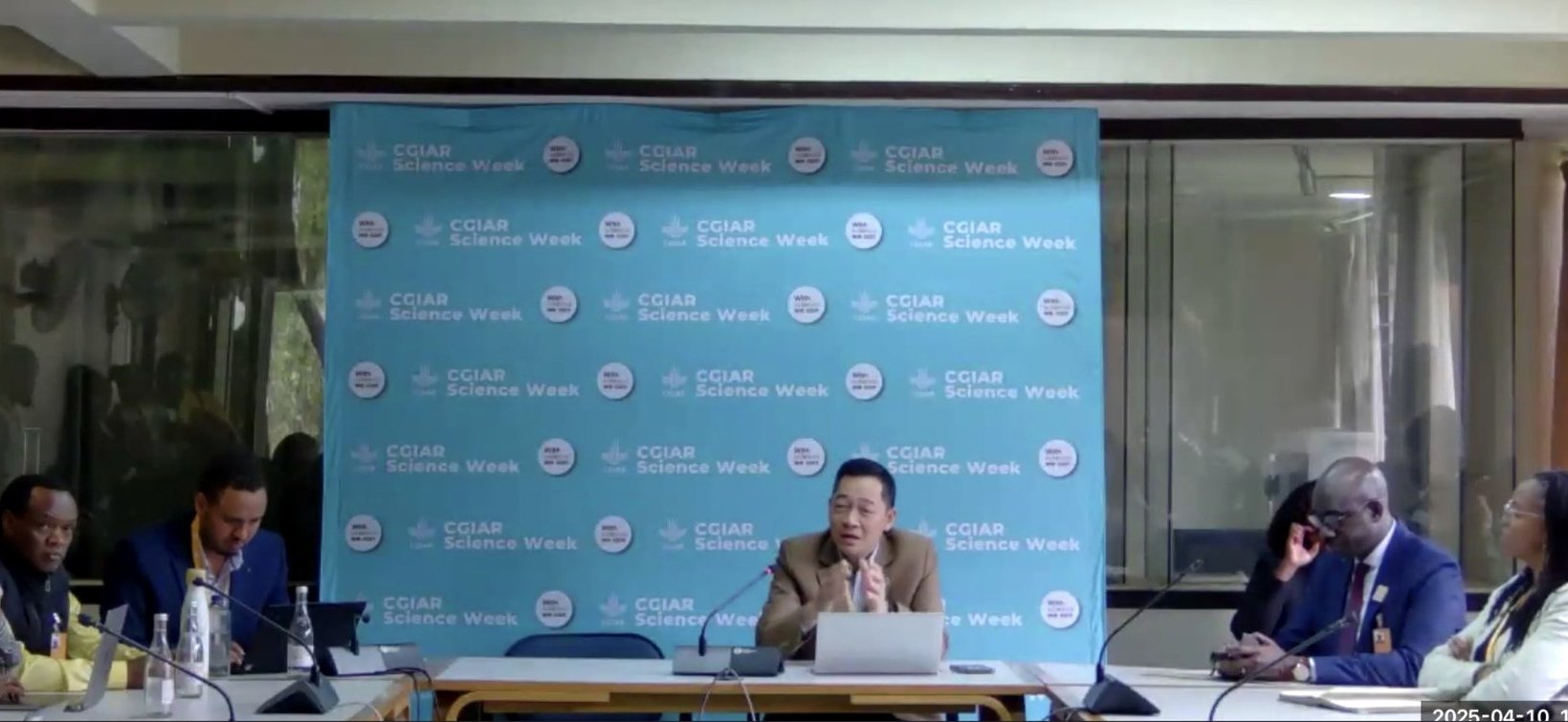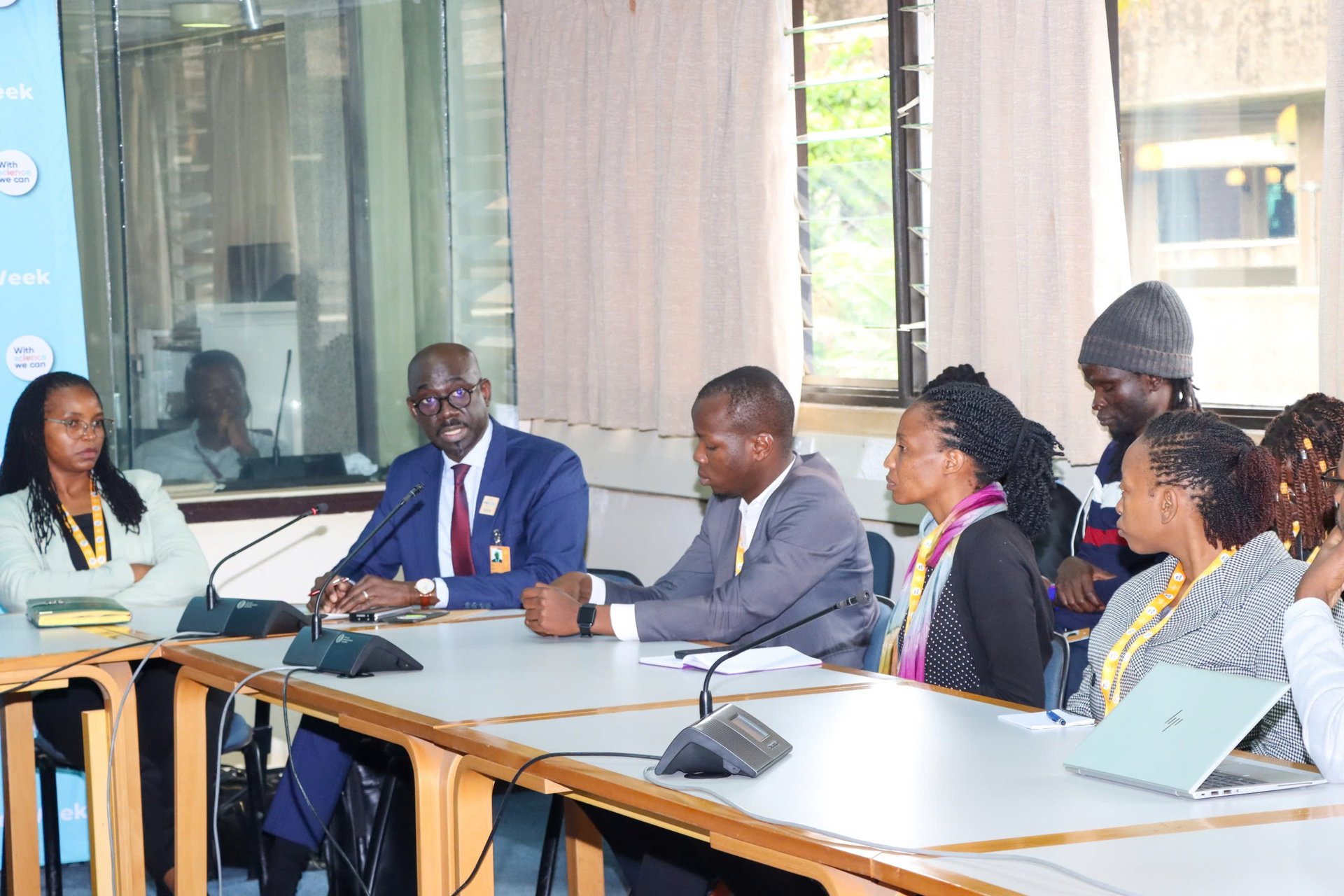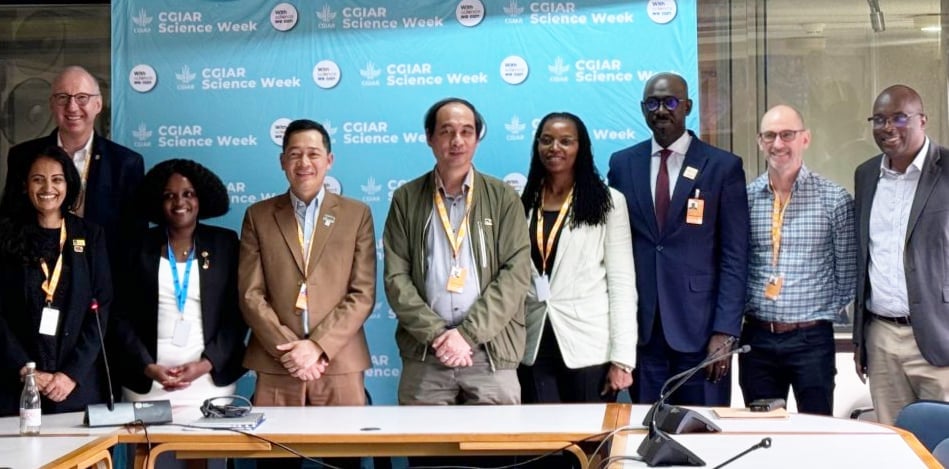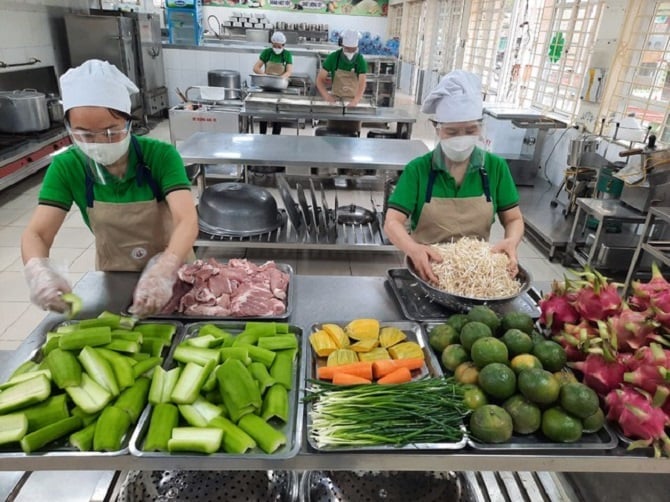May 20, 2025 | 16:45 GMT +7
May 20, 2025 | 16:45 GMT +7
Hotline: 0913.378.918
May 20, 2025 | 16:45 GMT +7
Hotline: 0913.378.918
The idea of interdisciplinary approach was echoed by several experts engaging in “One Health Horizons: Catalyzing Collaborations, Innovations and Policies for Improving Global Health and Food Security”, the side event of CGIAR Science Week 2025 in Nairobi, Kenya.
The One Health approach is regarded as a critical strategy in the face of unprecedented global challenges, including climate change, pandemics, environmental degradation, and food insecurity. The sustainability of both health and food systems is now a prerequisite, rather than merely an option.

Dr. Hung Nguyen-Viet, Leader of the Health Program at ILRI, addressed at the session “One Health Horizons: Catalyzing Collaborations, Innovations and Policies for Improving Global Health and Food Security”. Photo: Linh Linh.
One Health is an integrated approach that simultaneously evaluates the interconnections between the health of humans, animals, plants, and ecosystems. The implementation of this approach is being actively promoted by international organizations and governments in order to address complex, systemic challenges.
Dr. Hung Nguyen-Viet – Leader of Health Program at the International Livestock Research Institute (ILRI) and the leader of the CGIAR initiative on One Health – emphasized: “One Health is no longer an option. It has become a prerequisite for addressing the escalating challenges that our health and food systems are encountering. CGIAR has taken bold steps to incorporate One Health into its research and innovation agenda, with a clear and firm commitment."

Experts discuss One Health on the sidelines of CGIAR Science Week 2025.
Dr. Hung also underscored the importance of in-depth dialogue, as it offers the opportunity to critically evaluate what is effective, what is not, and what requires modification.
The value of gathering various voices – from researchers to policymakers – was emphasized by the ILRI scientist in order to guarantee that no voice is unheard in the expansion of this integrated approach. He highlighted key themes within the One Health interaction, including the links between soil health and terrestrial and aquatic animals, the role of behavior and economics in policy decision-making, and the necessity of transitioning from fragmented interventions to coherent strategies.

Mr. Dao The Anh and Mr. Nguyen Viet Hung gathering with other experts at the workshop. Photo: IPS.
In practice, the real concern is not merely in the theory or political commitment, but in the manner in which the implementation is performed. The value of coordinated action at the continental level has been proven by the experiences of initiatives such as the partnership with the World Organisation for Animal Health (WOAH), the PREZODE network on emerging zoonotic disease prevention, and institutions such as the Africa Centres for Disease Control and Prevention and the African Union's technical office AU-IBAR.
Simultaneously, it is imperative to develop robust evidence that clearly demonstrates the economic and social effects of interventions in order to guarantee that One Health policies are firmly established.
Dr. Dao The Anh, Vice President of the Vietnam Academy of Agricultural Sciences (VAAS), underscored that the One Health approach should be grounded in practical application, but its formal institutionalization is necessary for scaling up. He serves as the leader of a national agricultural research agency. This means clearly defining the roles and coordination mechanisms among ministries and sectors.
One Health Partnership is situated at the intersection of the Ministry of Health and the Ministry of Agriculture and Environment in Vietnam. Consequently, the nation endeavors to resolve policy and regulatory obstacles in order to establish an enabling environment that facilitates the successful implementation of One Health. The ultimate objective is to mobilize domestic resources rather than relying exclusively on international mobilization from organizations like the FAO or the CGIAR.

The economic burden of foodborne diseases amounts to USD 100 billion per year. Photo: Icert.
Vietnam's initial strategy for One Health was to regulate zoonotic diseases, which are diseases that are transmitted from animals to humans. This approach garnered significant attention during the COVID-19 pandemic as a result of the elevated risks of animal-to-human transmission. However, the nation now acknowledges that One Health has the potential to make a more comprehensive impact on a variety of facets of the food system.
Vietnam has been implementing a National Action Plan on Food System Transformation since 2023, which is closely associated with an agroecological approach and includes One Health as a critical component. One Health is being progressively integrated into a variety of sectors, including soil health, pesticide regulation, food safety assurance, and antibiotic use control, as well as plant protection practices and livestock production, according to the VAAS leadership.
Investment and economic impact are also critical factors, in addition to technical integration. According to the World Bank, the economic loss due to foodborne diseases is USD 115 billion annually, with the majority of this burden falling on low- and middle-income countries (LMICs). In comparison, annual investments in One Health-related initiatives under ILRI’s Health Program amount to approximately USD 25 million.
CGIAR research programs are attempting to integrate soil and plant health as essential elements of a sustainable food system. The African Union’s Fertilizer and Soil Health Action Plan, adopted in May 2024, serves as a concrete example of how the scope of One Health is expanding beyond health into agriculture and environmental sustainability.
Translated by Linh Linh

(VAN) In 2024, over 295 million people across 53 countries and territories faced acute hunger—an increase of almost 14 million people compared to 2023, while the number of people facing catastrophic levels of hunger reached a record high.

(VAN) World Environment Day 2025 (June 5) carries the theme 'Beat Plastic Pollution' continuing to emphasize the global urgency of addressing the plastic waste crisis.

(VAN) This was the assessment shared by experts at the workshop titled 'Assessing the Role and Potential of Low-Emission Rice Production Systems in Vietnam,' held on the morning of May 19.

(VAN) Cai Rong Port is the fisheries control center of Quang Ninh, helping to monitor fishing vessels, combat IUU fishing, and remove the EC's 'yellow card'.

(VAN) The German Agricultural Society (DLG) explores the possibility of establishing a mechanization service center in Vietnam’s Mekong Delta to support farmers in accessing and utilizing advanced machinery.

(VAN) On May 16, the Department of Water Resources Management, in collaboration with the Food and Agriculture Organization of the United Nations (FAO), held a signing ceremony for the GEF-8 project document.

(VAN) Food safety, mechanization, vocational training, and market opening are key areas of cooperation expected between the Vietnamese Government and the Federal Republic of Germany.